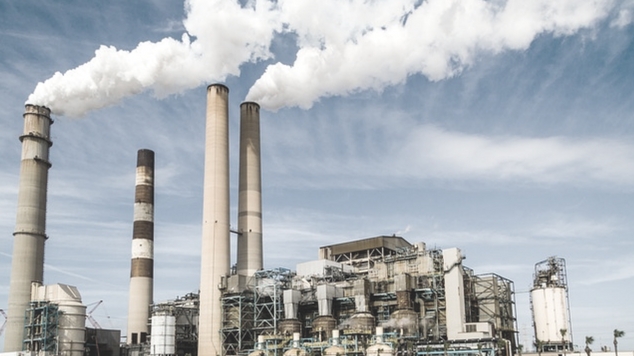Reversing Legacies of Pollution
Imagine it’s a holiday and you’re standing on the doorstep at the home of a loved one, anticipating a warm hug and a home-cooked meal (beans, greens, potatoes, tomatoes…you name it). You knock on the door and inhale deeply, expecting to fill your nostrils with delicious scents.. and instead you get a blast of odors that smell like bleach and rotting fish, chock-full of volatile organic compounds (VOCs) and particulate matter. Who’s hungry?
Unfortunately, that’s not just a hypothetical story – it’s the reality of families in neighborhoods right here in Michigan. Our government has a major role in reversing the legacy of pollution in the form of stronger enforcement of regulations and the creation of additional safeguards through new rules and requirements.
Better Enforcement
Michigan’s Department of Environment, Great Lakes and Energy (EGLE) issued at least five different violations since 2021 at two Stellantis facilities in Warren and Detroit for VOCs and particulate matter. EGLE also found the U.S. Ecology hazardous waste facility (in Detroit’s Poletown East neighborhood) in violation 36 times since 2014. Despite U.S. Ecology denying the impact of these violations, the site continues to emit strong odors and may be leaking hazardous waste like hydrogen sulfide into local groundwater, soil, sewers, and local homes nearby.
It shouldn’t be any surprise that these industrial facilities are often located in low-income and communities of color, a result of systemic racism, the influence of corporations in government, and other factors. But why can’t these facilities get their act together after repeated violations and enforcement of our environmental laws by agencies like EGLE and the Environmental Protection Agency (EPA)?
New Safeguards
Enforcement is only part of the story. Pollution continues to build up in a cumulative way in hotspots around Michigan and the country, yet our laws and safeguards struggle to keep pace in order to reduce the burden of pollution on all of us, but especially the most vulnerable and disproportionately impacted. Our government has a critical responsibility to advance and strengthen rules and regulations that will protect public health first and foremost, especially given advances in technology and scientific knowledge.
While the Biden Administration has prioritized action on climate change, pollution, and environmental justice, our federal executive agencies are woefully behind on new standards to clean up pollution, especially in the realm of air quality. Analysis by Evergreen Action and other experts show that EPA is falling behind on eight key air quality regulations, with only two rules actually on track. These standards include limiting the amount of toxic chemicals like mercury and arsenic in the air, cleaning up smog and soot, and much more.
Despite these delays, there are many actions by the Biden Administration to be thankful for, even in just the last few days. Two weeks ago the EPA announced the largest investment for community air monitoring in history, a week ago the EPA announced a stronger proposed rule to reduce methane pollution, and just today the White House Council on Environmental Quality rolled out version 1.0 of the Climate and Economic Justice Screening Tool, which will help implement the Justice40 initiative to make sure the benefits of federal programs reach historically overburdened communities.
Hopefully all of these actions can add up to a future where people can just worry about the delicious smells wafting in from the kitchen and not about noxious odors and toxic gasses jeopardizing their health and well-being.

